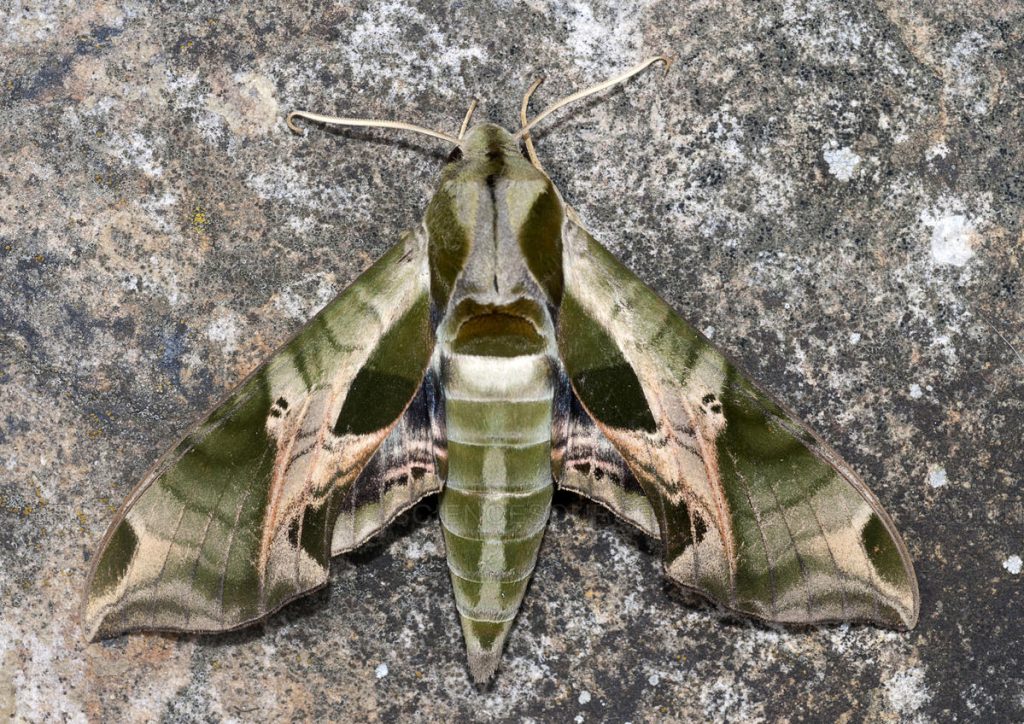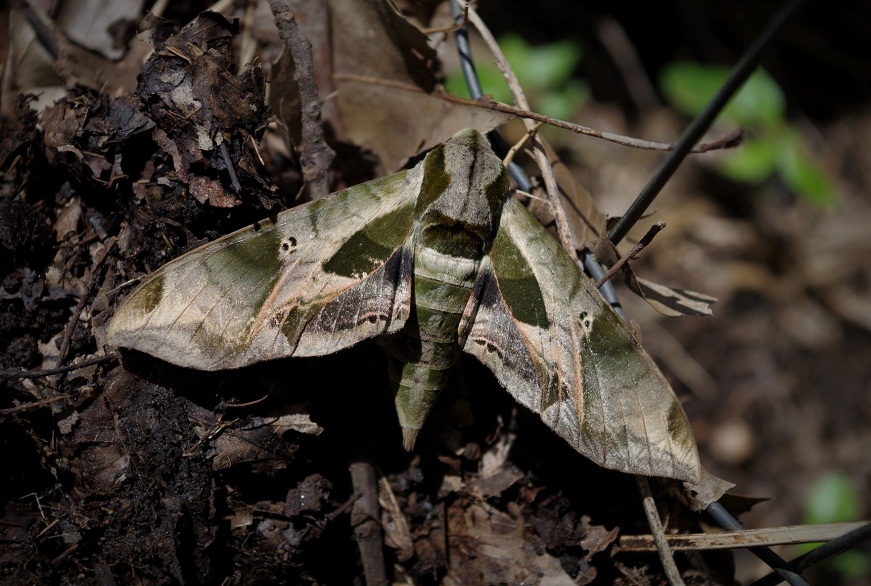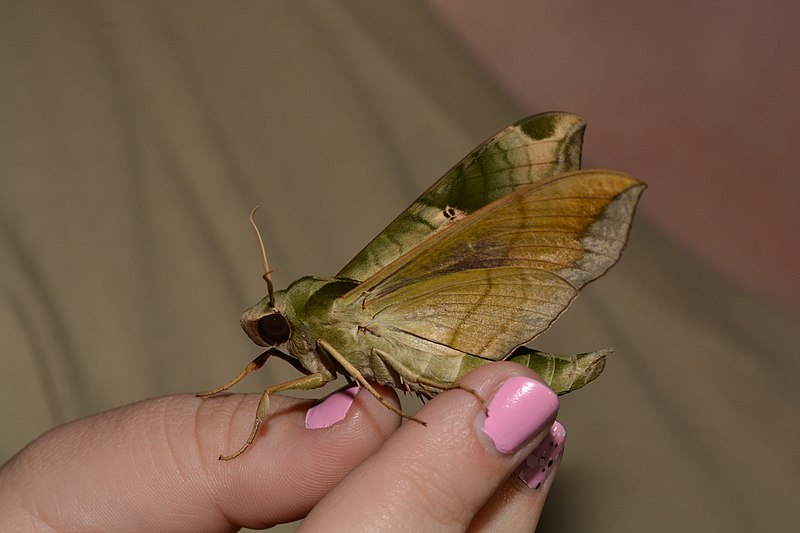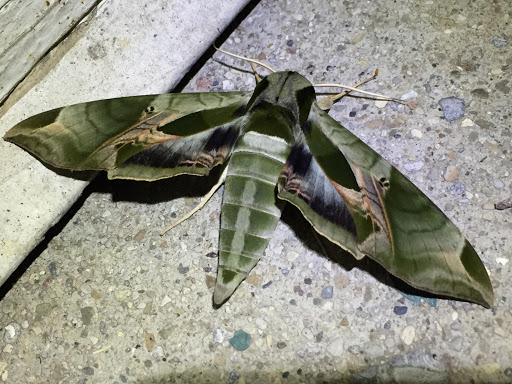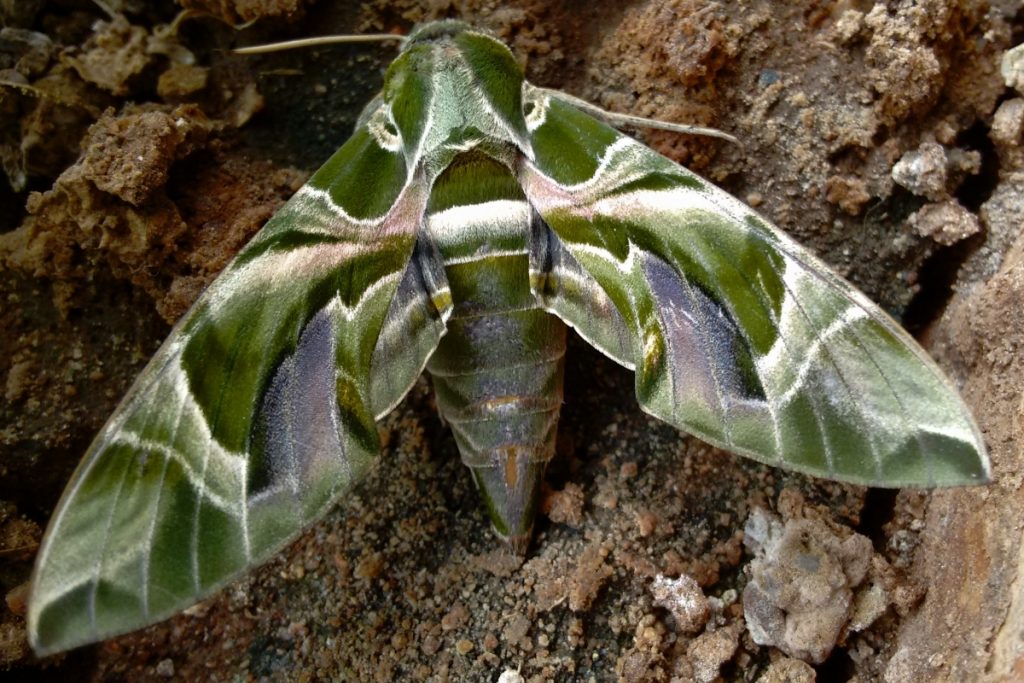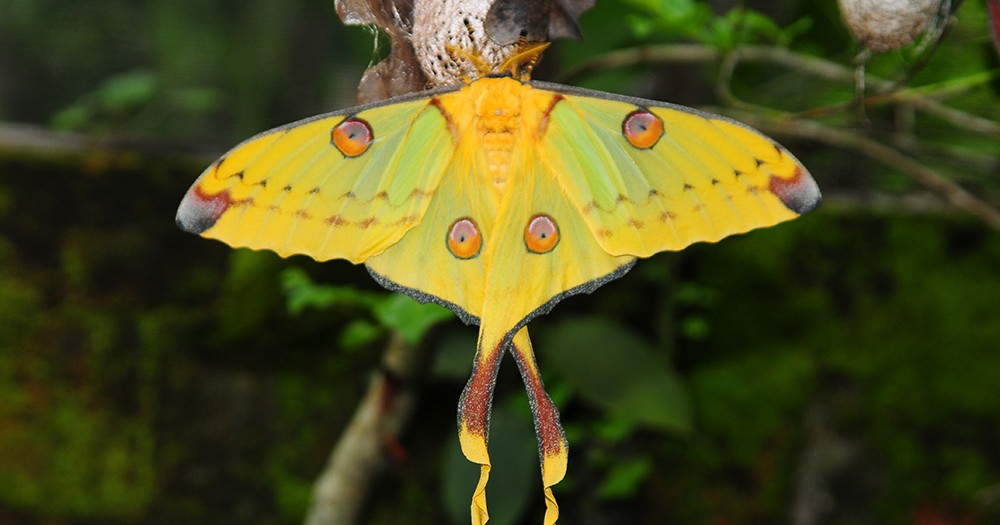Pandora Sphinx Moth (Eumorpha pandorus)
Pandora sphinx moth of the sphinx moth family is a native of North America. The larva of most members of the sphinx moths holds their legs above the surface, tucking their head below, hence the name.
sciencesource.com
Scientific Classification
- Family: Sphingidae
- Genus: Eumorpha
- Scientific Name: Eumorpha pandorus
Description and Identification
Caterpillar
The larvae are red or even green, with the last segment of their thorax a little swollen into which the head alongside the first two segments is drawn. A small-sized white spot adorns the second abdominal segment, while the five spiracles at the end have large white oval-shaped spots. At the end of the abdomen lies a horn that finally gets replaced with a button when it reaches its final instar. They mostly thrive on their host plant’s foliage, and once ready for their pupal stage, they bury themselves underground for pupation.
Pupa
The dark brown pupa possesses a long cremaster.
Adult Moth
Sexual Dimorphism: Present
Females are a little larger in comparison to their male counterparts.
Color and Appearance
Forewings: They are pointed narrow and much larger than the hindwings, appearing greenish-gray with pink edges and tiny pink eyespots.
Hindwings: They are yellowish-green or brown.
Whether opened or closed, there is no significant change in the coloration.
Average Wingspan: 8.2 – 11.5 cm
Flight Pattern: Consistent
Season: North – June to August; South – April to October
Eggs
The translucent eggs are laid on the host plant’s leaves.
Quick Facts
| Other Names | Pandorus sphinx moth |
| Distribution | East, southeast, and central parts of North America, Nova Scotia to Ontario; as well as to the southern parts of Florida as well as Texas |
| Habitat | Woodlands, near gardens, vineyards, meadows, rivers, and other places where their host plants grow |
| Predators | Wasps, birds, bats |
| Lifespan of Adults | 10 – 30 days |
| Host Plants | Grapes, peppervine, Virginia creeper |
| Adult Diet | Nectar from bouncing bet, white campion, and petunia |
Scientific Classification
- Family: Sphingidae
- Genus: Eumorpha
- Scientific Name: Eumorpha pandorus

